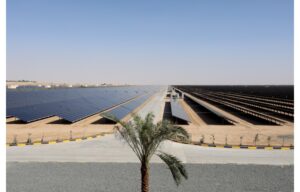- Professor Michael Saliba of Stuttgart University has won a €1.5 million Starting Grant from the ERC for his perovskite research
- The grant will support Saliba in carrying out his LOCAL-HEAT project to use light in controlling uncontrolled film growth during liquid-to-solid phase transition
- Saliba believes this will enable the development of highly efficient perovskite solar cells with sustained stability
The European Research Council (ERC) has awarded a €1.5 million Starting Grant to Professor Michael Saliba from the University of Stuttgart to support his research on perovskite thin films where he will work on using light to control uncontrolled film growth.
Saliba heads the Institute for Photovoltaics (IPV) in the German university. He has bagged the starting grant for his LOCAL-HEAT project (Controlled Local Heating to Crystallize Solution-based Semiconductors for Next-Generation Solar Cells and Optoelectronics). He believes his research will enable the development of highly efficient perovskite solar cells that maintain their stability over several decades.
Through his work, Saliba will work on controlling the fundamental nucleation and crystallization kinetics of semiconductor films for the liquid-to-solid phase transition, by using light. In the current processes, this transition often leads to uncontrolled film growth with ragged grain boundaries of different sizes which may result into ‘undesirable’ effects as water penetration.
“A lack of high-quality materials with large, controlled grains hinders the development of solution-processed semiconductors,” according to the team.
Saliba’s project aims to create local heat packages, with the help of 2 new methods, for controlled grains and thin films. One of the methods relies on laser beams that can be precisely adjusted, and the other relates to thermoplasmonic heating of metallic nanoparticles that turn incoming light into localized heat.
“LOCAL-HEAT will thus revolutionize the production of solution-based materials and enable the development of new key technological applications in optoelectronics and medical technology,” explained Saliba.
ERC’s Starting Grants aim to support outstanding scientists at an early stage in their careers, and help them launch their own projects, form teams and pursue their best ideas. Saliba is one of the 397 early-career researchers selected for ERC’s 1st call for proposals under European Union’s (EU) new R&I program Horizon Europe.
In June 2021, TaiyangNews conducted a 3-day Virtual Conference on What’s Hot In European Solar R&D to discuss the 1st results of Horizon 2020 PV projects (see Jun. 28-30, 2021: What’s Hot In European Solar R&D).

